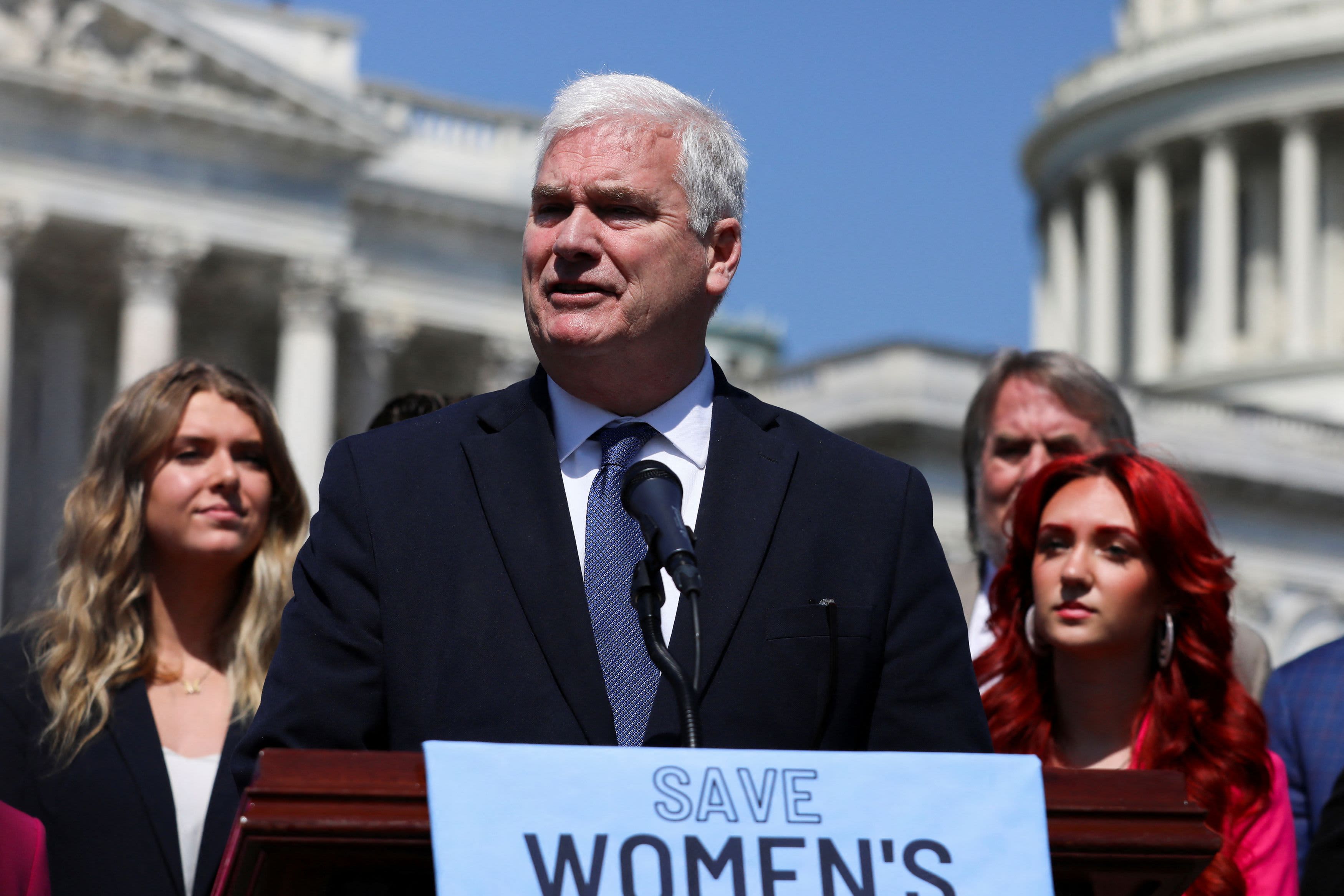The nine Republicans running for House Speaker
The race to select the Republican nominee for House Speaker is heating up, with nine GOP candidates making their pitches before a party candidate forum on Monday evening. The GOP lawmakers will then hold an internal vote on Tuesday morning to choose their nominee, who could potentially face a floor vote in the House later in the day. This comes after two previous candidates failed to secure enough backing within the party, leaving the leadership crisis unresolved.
Speaker race wide open
Following the failed bid by Ohio Rep. Jim Jordan, who lost in three votes last week, the speaker race is now wide open with nine GOP lawmakers vying for the party’s nomination. The lack of resolution has left the House leaderless for over two weeks and has caused Congress to be paralyzed as the deadline to avoid a government shutdown looms closer. President Joe Biden has called for urgent security assistance for Israel and Ukraine, further adding pressure to the situation.
House Republicans’ candidate forum and vote
House Republicans will hold a closed-door candidate forum on Monday evening, followed by an internal party vote on Tuesday morning to select their nominee for House Speaker. Interim House Speaker, Patrick McHenry, has expressed his desire for the nominee to face a House vote as early as Tuesday.
Divisions within the GOP
The failure of previous candidates has highlighted the deep divisions within the Republican party. Democrats have already rallied behind their nominee, House Minority Leader Hakeem Jeffries, which means that the GOP nominee can only afford to lose four Republican votes given the narrow majority in the House. Additionally, only two out of the nine GOP candidates, Majority Whip Tom Emmer and Rep. Austin Scott, voted to certify President Joe Biden’s victory in the 2020 presidential election. The remaining candidates objected to Biden’s victory and voted against establishing a commission to investigate the January 6th riot at the Capitol.
Meet the nine Republican candidates:
- U.S. House Majority Whip Rep. Tom Emmer (R-MN): Emmer has the backing of former Speaker Kevin McCarthy and voted to certify the 2020 presidential election results. He also voted to fund the government in September.
- Rep. Austin Scott (R-GA): Scott previously ran against Jordan for the GOP nomination, lost, but subsequently supported Jordan’s bid. Scott voted to certify the 2020 presidential election results and also voted to fund the government in September.
- Rep. Jack Bergman: Bergman, a retired Marine Corps officer, criticized Republicans for not electing a Speaker and emphasized the need to fund the government before the November 17th deadline. He objected to the 2020 presidential election results and voted to fund the government in September.
- Rep. Byron Donalds (R-FL): Donalds, a member of the ultraconservative Freedom Caucus, was nominated multiple times earlier this year to block McCarthy’s bid for the gavel. He objected to the 2020 presidential election results in Arizona and Pennsylvania and did not vote on the spending legislation in September.
- Rep. Kevin Hern (R-OK): Hern, chairman of the Republican study committee, stressed the need for unity within the GOP and called for selecting a candidate who can serve as a trusted caretaker. He objected to the 2020 presidential election results and voted against funding the government in September.
- Rep. Mike Johnson (R-LA): Johnson, the GOP deputy whip and vice chairman of the Republican conference, deferred running for Speaker to respect Jordan, Scalise, and Scott. He objected to the 2020 presidential election results and voted against funding the government in September.
- Rep. Dan Meuser (R-PA): Meuser, a member of the bipartisan House Problem Solvers Caucus, called for inclusivity within the Speaker’s office to maintain unity. He objected to the 2020 presidential election results in Pennsylvania but not in Arizona. Meuser voted to fund the government in September.
- Rep. Gary Palmer: Palmer, chairman of the House Republicans’ policy committee, pledged to move the party beyond its internal divisions. He objected to the 2020 presidential election results in Arizona and Pennsylvania and voted against funding the government in September.
- Rep. Pete Sessions (R-TX): Sessions highlighted the importance of border security and expressed his commitment to addressing the issue. He objected to the 2020 presidential election results and voted against funding the government in September.
With the clock ticking, Republicans must quickly rally behind a nominee to avoid further paralysis in the House and regain their leadership position. The choice of House Speaker will have significant implications for the party and the country.


